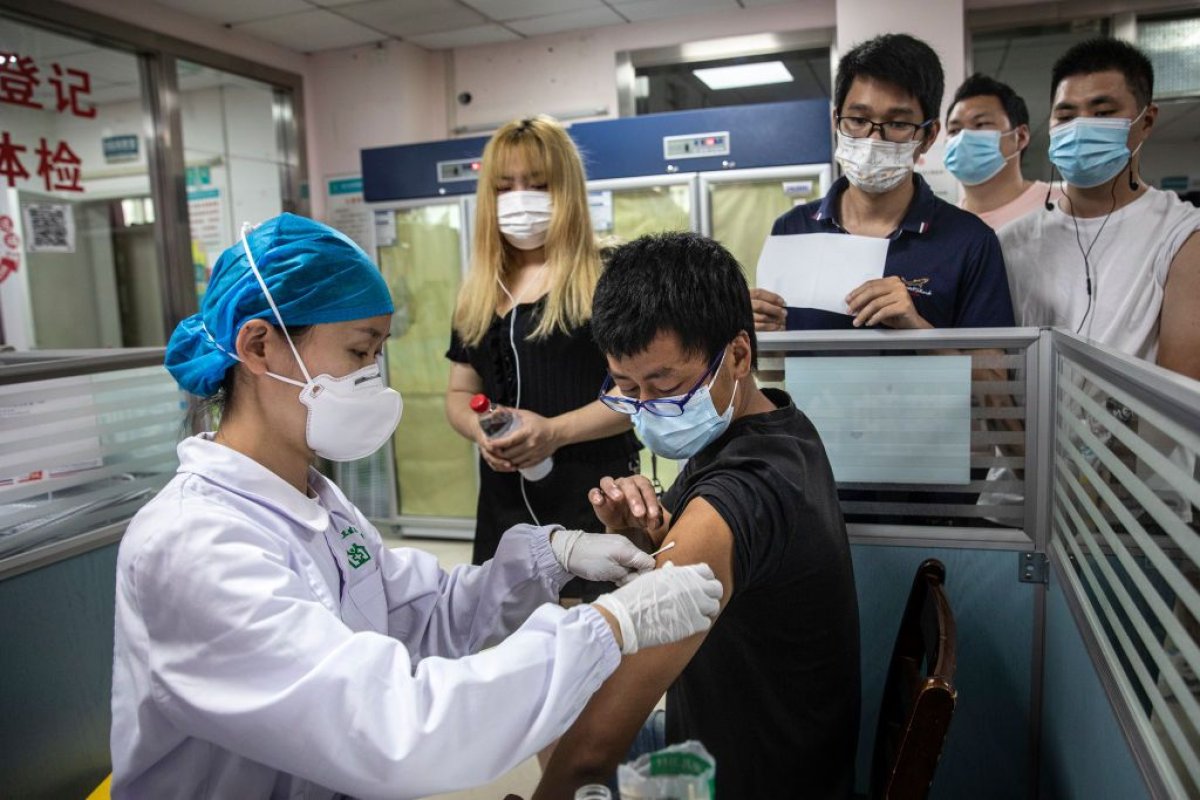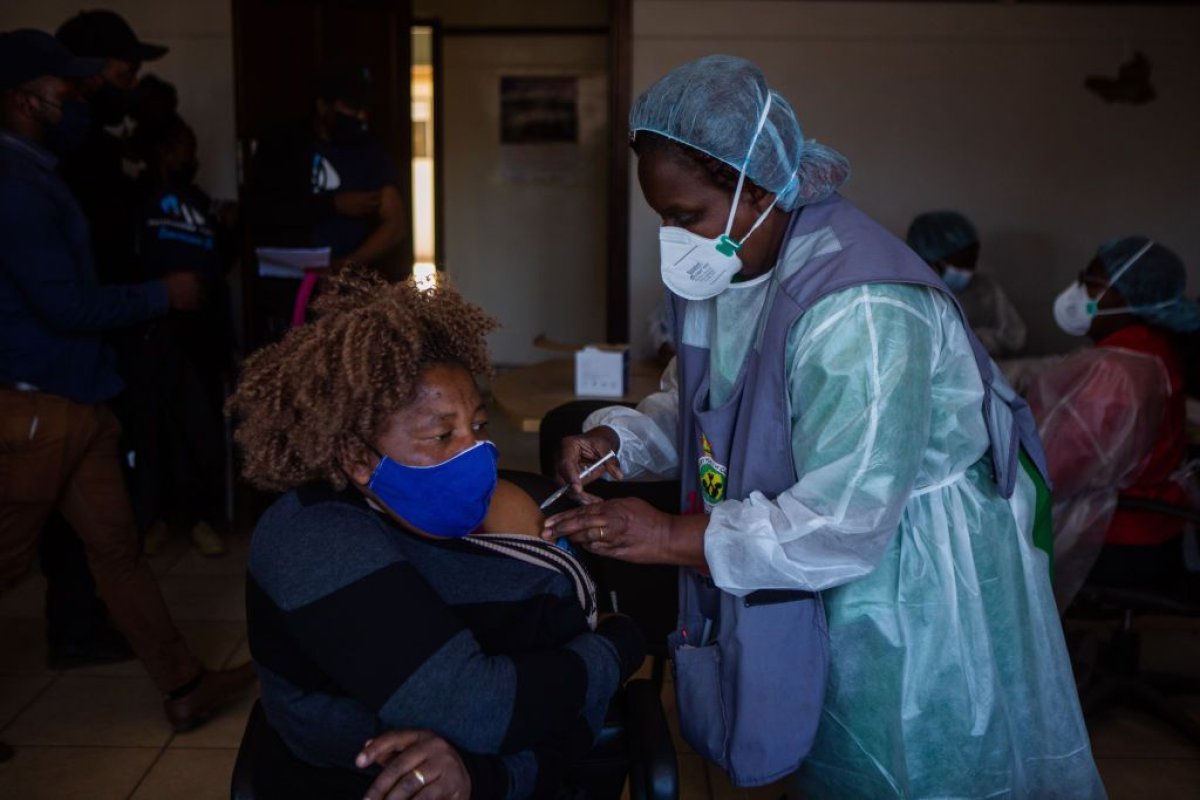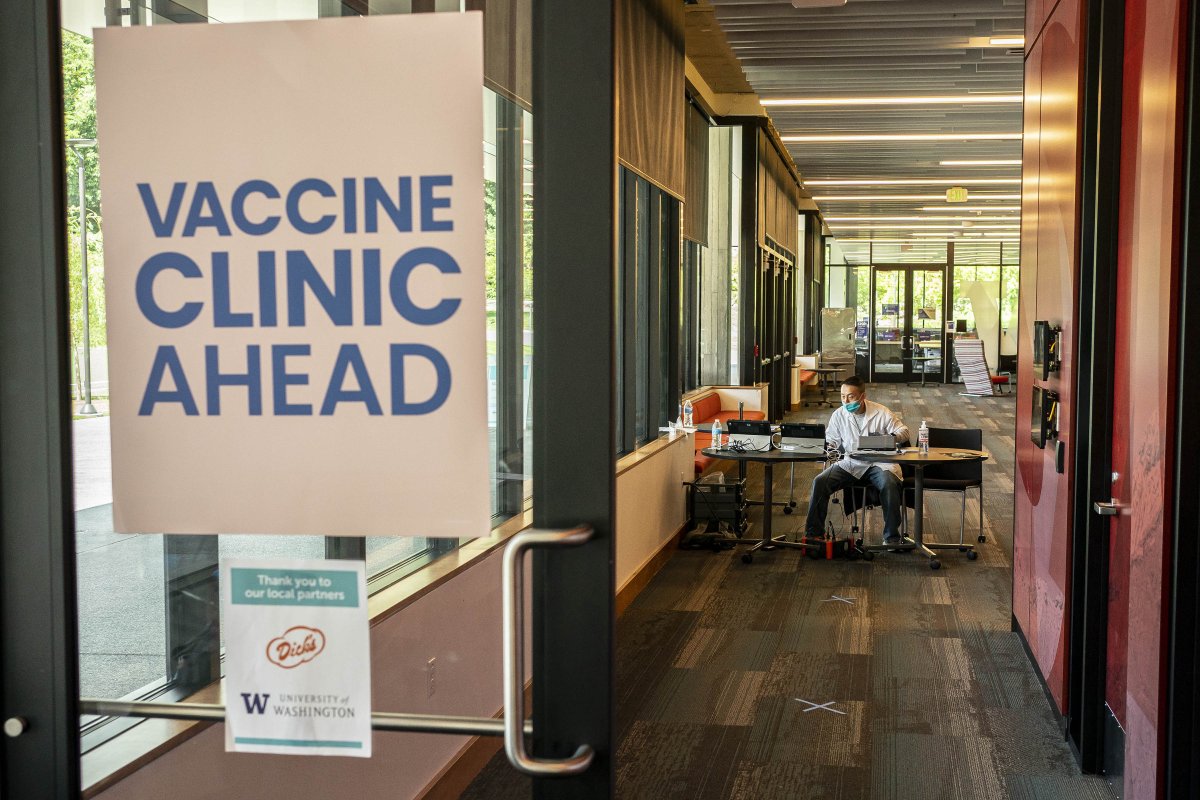More than 500 colleges and universities in the United States will require students to be vaccinated against COVID-19 before beginning the fall semester, but a patchwork of rules about which vaccines satisfy the mandates has created uncertainty for international students.
For those who received vaccines in their home countries that are not approved by the U.S. Food and Drug Administration or the World Health Organization, most universities will require another jab. Among the vaccines in this category are those produced in China, Cuba, India, Kazakhstan and Russia.
"We are headed into a very chaotic phase," Alicia Ely Yamin, senior fellow at Harvard Law School's Petrie-Flom Center for Health Law Policy, Biotechnology and Bioethics, told Zenger.
Yamin said there is no clear framework in place to evaluate the efficacy of unfamiliar COVID-19 vaccines, and that leaving the decision up to individual institutions is producing "enormous inequities."

"They need to be able to use governmental and intergovernmental institutions' approvals as proxies for making their own protocols and policies," Yamin said.
Data maintained by the Chronicle of Higher Education indicate that hundreds of campuses will require students or employees to be vaccinated.
Some colleges, including Boston University, the University of Washington and the California State University system, will accept students who have received any vaccine.
Among the schools accepting only FDA- or WHO-approved vaccines — those produced by Pfizer-BioNTech, Moderna, Johnson & Johnson, AstraZeneca and Sinopharm — are Georgetown University, the University of Chicago and New York University.
"Requiring vaccinations is consistent with our intent to minimize the spread of COVID-19 within our own community, and more generally in New York City, and to enable more in-person on-campus activities," New York University Provost Katherine Fleming said in an April statement.
Under NYU's requirements, students who received other vaccines also must quarantine.
"All students who are not fully vaccinated and spend 24 hours or more in a country with a CDC Level 4 Travel notice in the 10 days immediately prior to arriving at NYU will be required to quarantine," the statement says.

"It makes sense politically," said Zoe Chen, a New York University student from Beijing, "but individually, I'll feel like, 'Why don't you just admit my vaccine? You are creating more trouble for me.'"
Chen said she has concerns about the safety of repeated COVID-19 inoculations.
"I will have some health concerns because I'm not sure if you can get re-vaccinated in a short period of time," she said.
Few studies have been done on the safety of mixing vaccine brands.
Early findings from a UK study suggest that it's safe and effective to mix a "viral vector" vaccine such as the Johnson & Johnson or AstraZeneca shot with an mRNA vaccine like Pfizer's. Both vaccines used in the study were approved by the WHO, and research subjects were all older than 50.
The Centers for Disease Control and Prevention says that "people are not recommended to receive more than one complete COVID-19 vaccination series," but its guidance for those vaccinated outside the U.S. with brands not approved by the FDA or WHO recommends they get a second round.
"You always have to look at any of these vaccines from the perspective of the safety of receiving the vaccine itself and then, will it work?" said Jessica Justman, an associate professor of medicine in epidemiology at the Columbia University Mailman School of Public Health.
Though there are few studies currently available using non-WHO-approved vaccines, the "logic makes sense," Justman said, since other kinds of vaccines have been shown to be safe together.
"I'd accept getting re-vaccinated," said Jing Tan, an international student at Stony Brook University on Long Island. Jing received the Sinopharm vaccine, the Chinese-made variant approved by the WHO but not the FDA. "There must be some quality problem if a vaccine is not approved by the FDA."

China has administered the largest number of COVID-19 shots in the world, just under 1.8 billion doses as of Aug. 16, according to WHO data. Of the six vaccines available there, only three are WHO-approved.
India has distributed the second-highest number, 519 million, with only one of its three brands approved by the WHO.
Justman said that while universities are concerned about whether the vaccines received by returning international students are as effective as those from Pfizer and Moderna, the bigger problem is the limited public acceptance of the shots in general.
"Really, all the authorized vaccines have very, very high rates of efficacy when it comes to preventing severe disease, hospitalization and death," Justman said.
"The 'booster' that the U.S. needs right now is for everyone to get vaccinated."
About 1.1 million international students were enrolled in U.S. institutions of higher education in the 2019–20 academic year, according to the Migration Policy Institute.
This story was provided to Newsweek by Zenger News.
Correction 08/25/21 11:26 a.m. ET A previous version of this story stated that Stony Brook University is in upstate New York. Stony Brook is on Long Island, NY.
Uncommon Knowledge
Newsweek is committed to challenging conventional wisdom and finding connections in the search for common ground.
Newsweek is committed to challenging conventional wisdom and finding connections in the search for common ground.
About the writer
To read how Newsweek uses AI as a newsroom tool, Click here.








